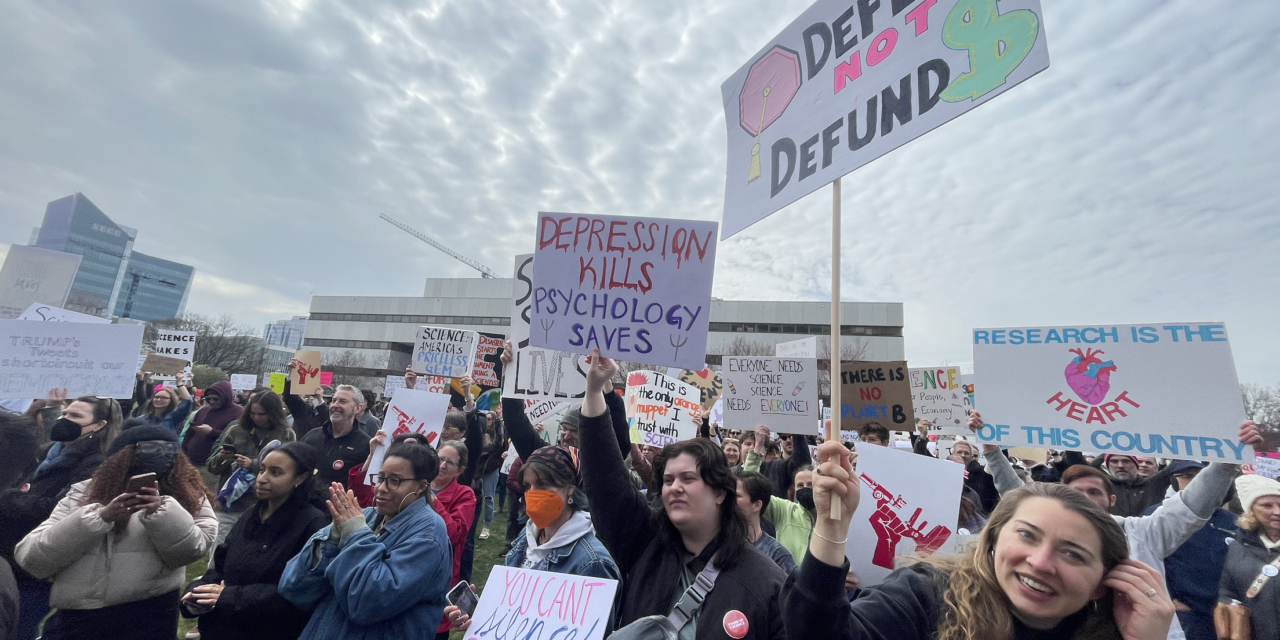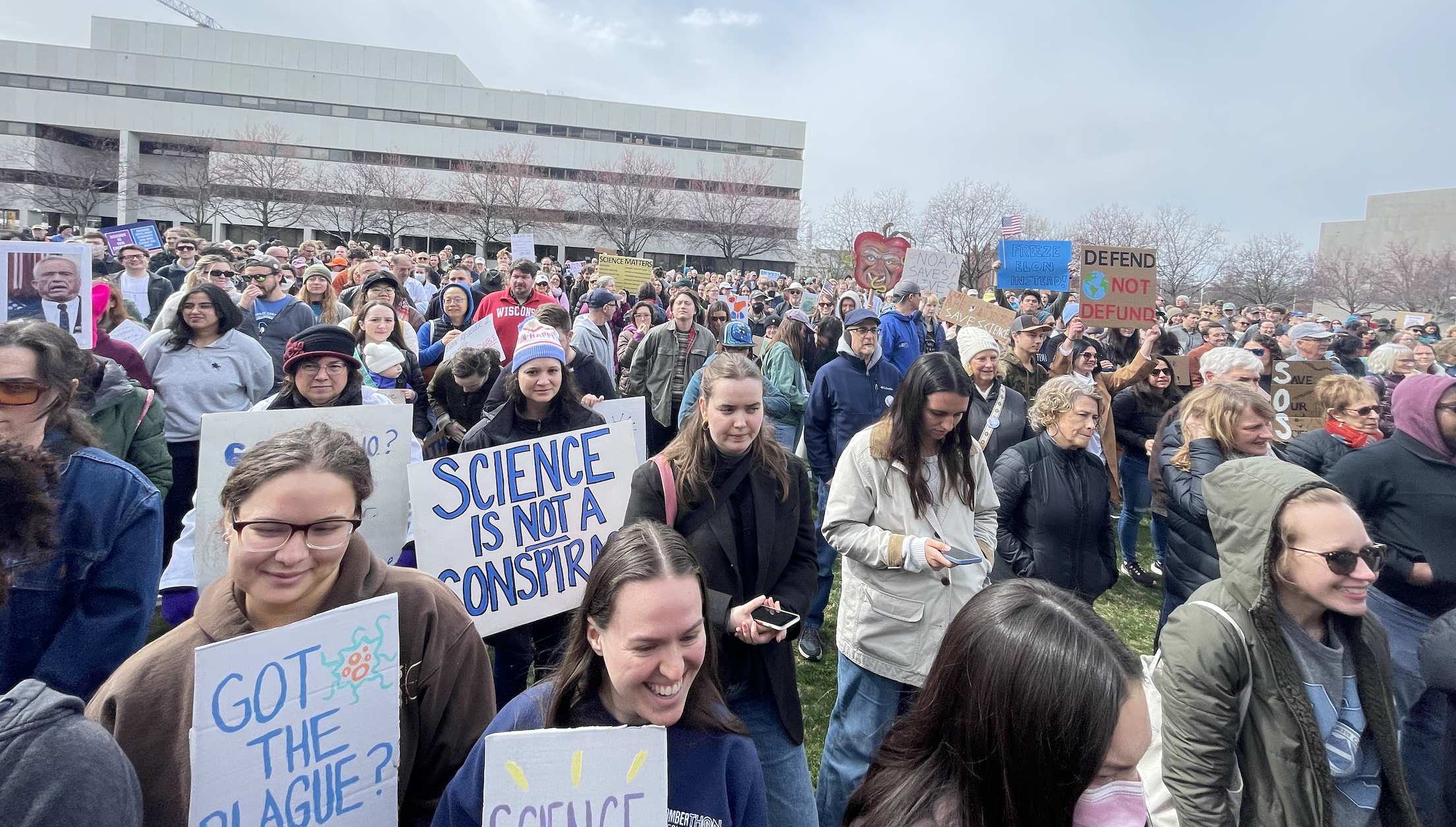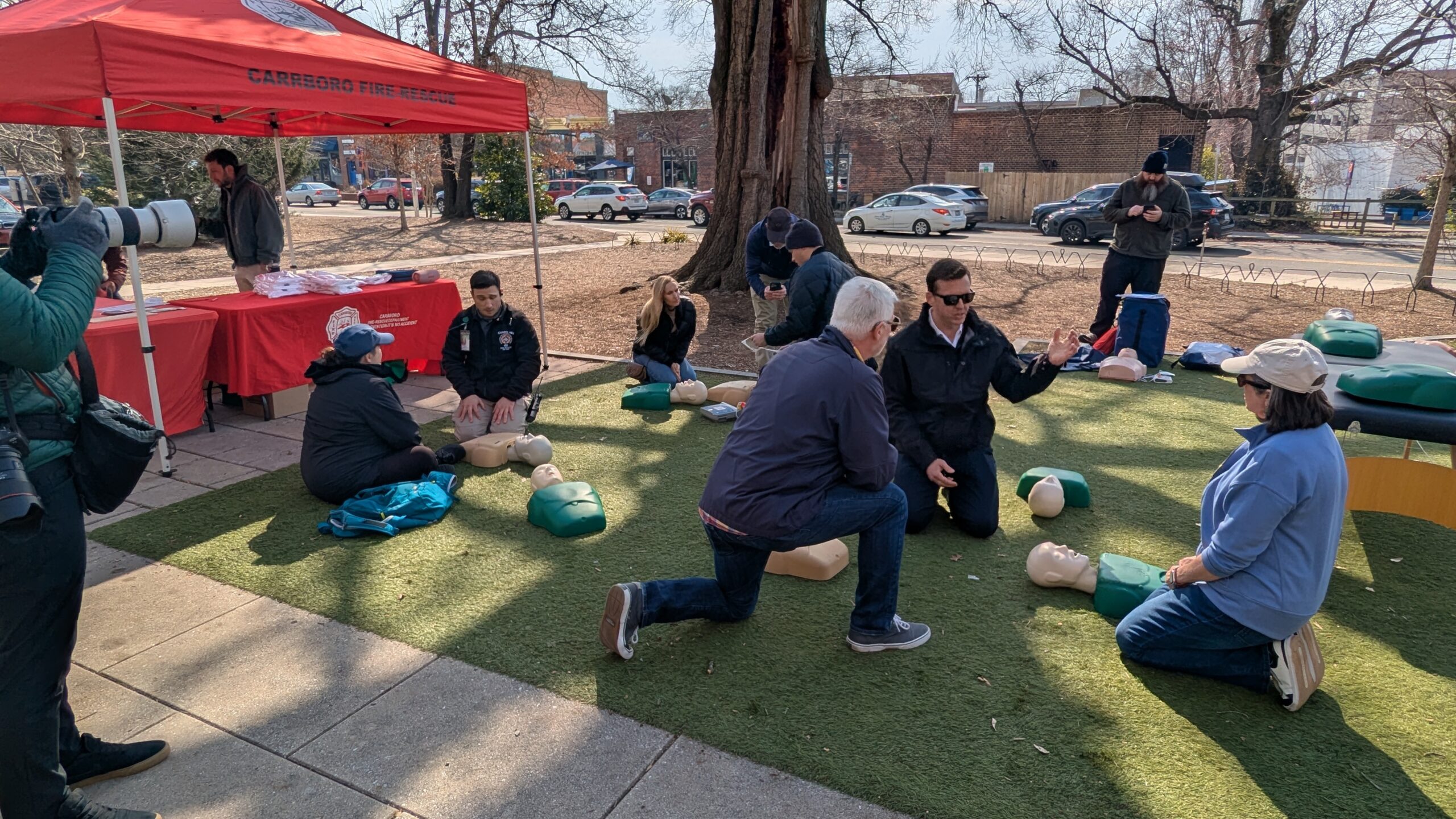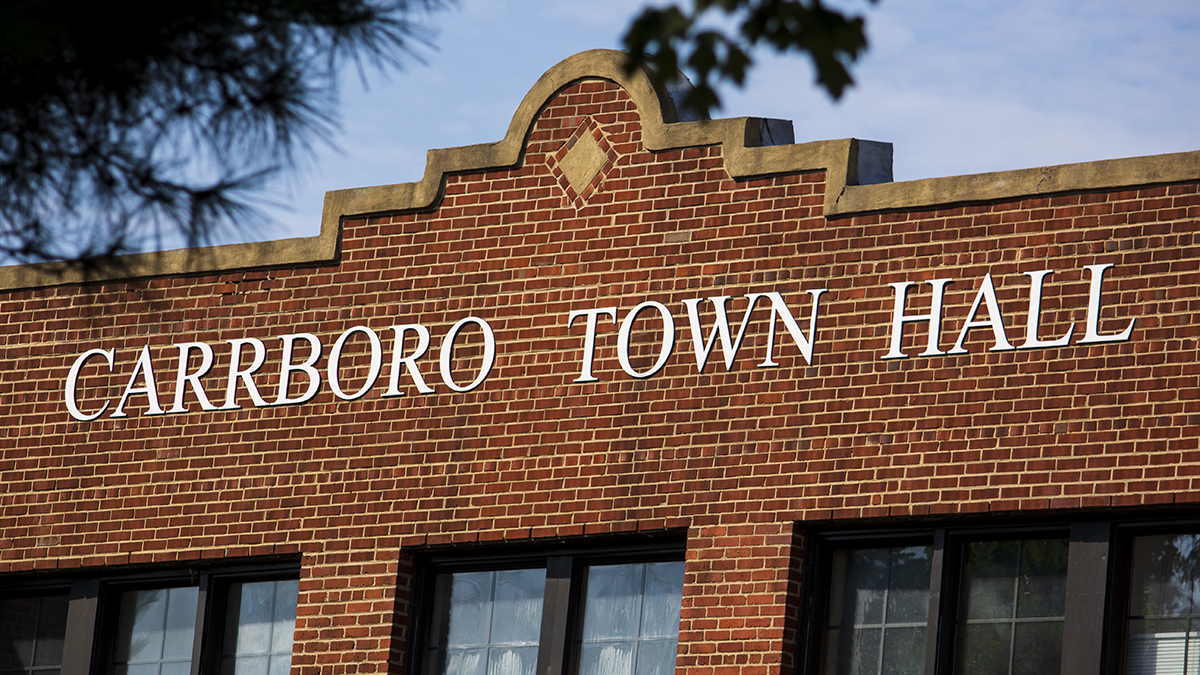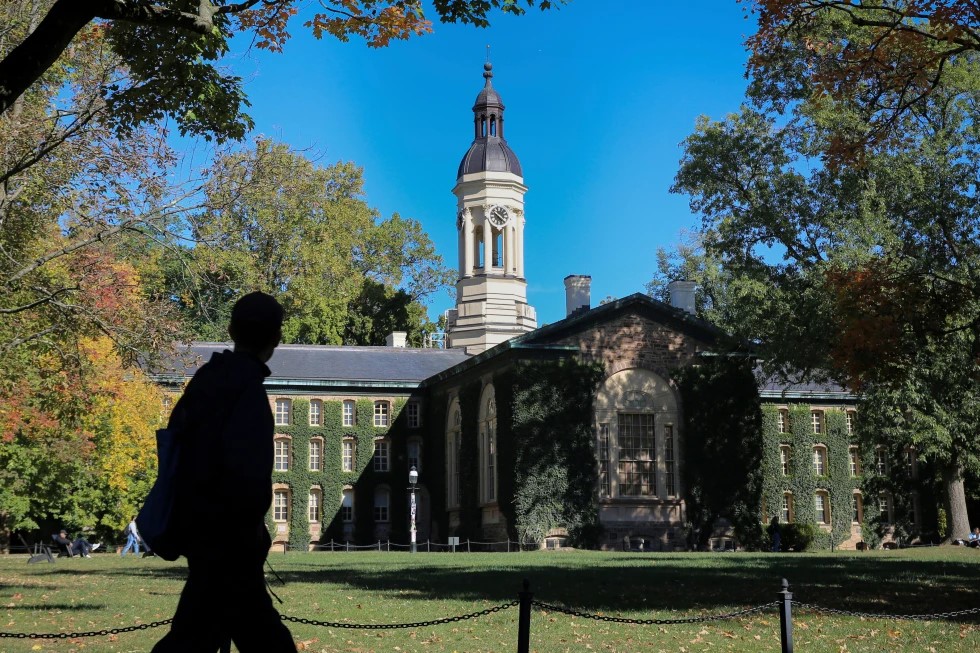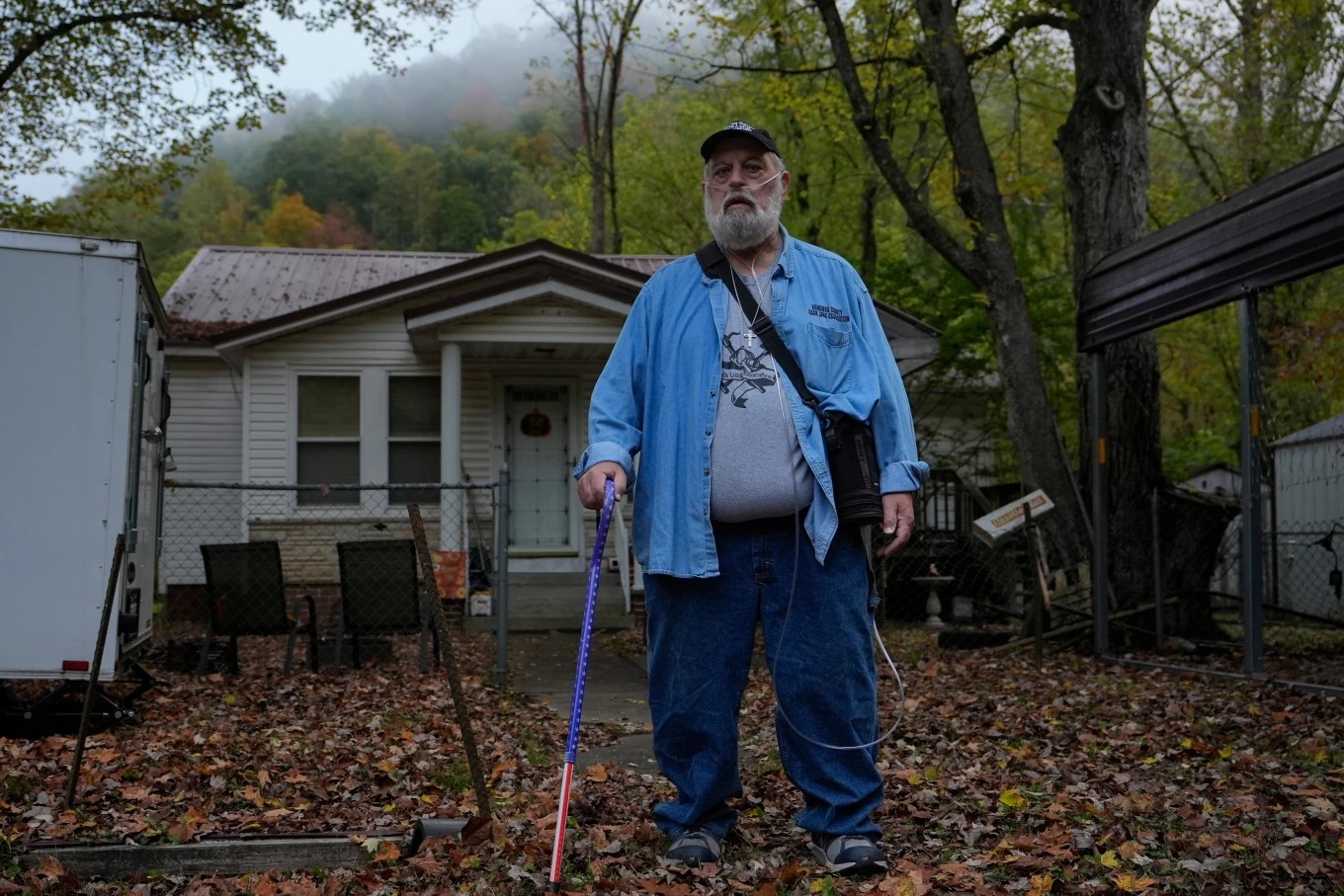Hundreds of demonstrators gathered on Friday at Halifax Mall in Raleigh to protest against cuts in federal funding for scientific research. The event was one of 32 official rallies happening in cities across the country under the title “Stand Up For Science.”
The nationwide rallies were mainly in response to recent actions of the Donald Trump administration, especially its Department of Government Efficiency (DOGE). The unofficial government unit created by Trump and led by Elon Musk has triggered mass firings and funding cuts. The protest in Raleigh started with speeches by several featured speakers, each of them a local scientist or researcher with some personal insight on the effects of funding cuts.
Noelle Muzzy, who was one of the main organizers, said it’s important for people to hear these stories.
“Stand Up For Science is a really good opportunity for people to both tell stories about how they’ve been impacted by research, whether they’re a scientist professionally or not,” she said. “It also is a good opportunity to tell the story of these researchers and how their entire careers are being possibly screwed over.”
Muzzy, who is a research fellow in a program with the Oak Ridge Institute of Science and Education that placed her at the EPA campus in Research Triangle Park, emphasized that a lack of research doesn’t just affect those doing the work, and has widespread consequences for society.
“These things are extremely important for human health and for the well-being of everybody,” she said. “To just say, ‘No, we don’t want to fund that anymore,’ is just not fair. It’s injustice for the families that are getting laid off and the people who can no longer do jobs, but it’s also an injustice with the people who would benefit from that knowledge.”
Enya Dewars, another main organizer of the protest, said one of the primary takeaways she hopes people learned about is the scale of implications caused by the funding cuts.
“I hope that the messages that we can share come across to the people who aren’t necessarily aware of this, and it shows them this is happening not just in one state, in many states, and this is something that is important,” she said.
Dewars, who does cardiovascular research as a PhD student at Duke University, said she’s been encouraged by the level of outrage she’s seen within the university communities of the area.
“I’m glad to see that there’s this united, shared frustration that I think is very valid, and it’s just nice to see that that’s reflected,” she said.
U.S. Representative Deborah Ross, a Democrat who represents North Carolina’s 2nd congressional district, appeared at the event to reaffirm her commitment to protecting scientific research and warn about the deadly effects of slashing the National Institute of Health (NIH).
“Make no mistake: his policy will have a real impact on our people and on our economy,” she said. “Trump’s cuts will impose dire consequences on North Carolina patients, workers, researchers, and the businesses that depend on that research. It is wrong, it is short-sighted, and it is flat-out cruel.”
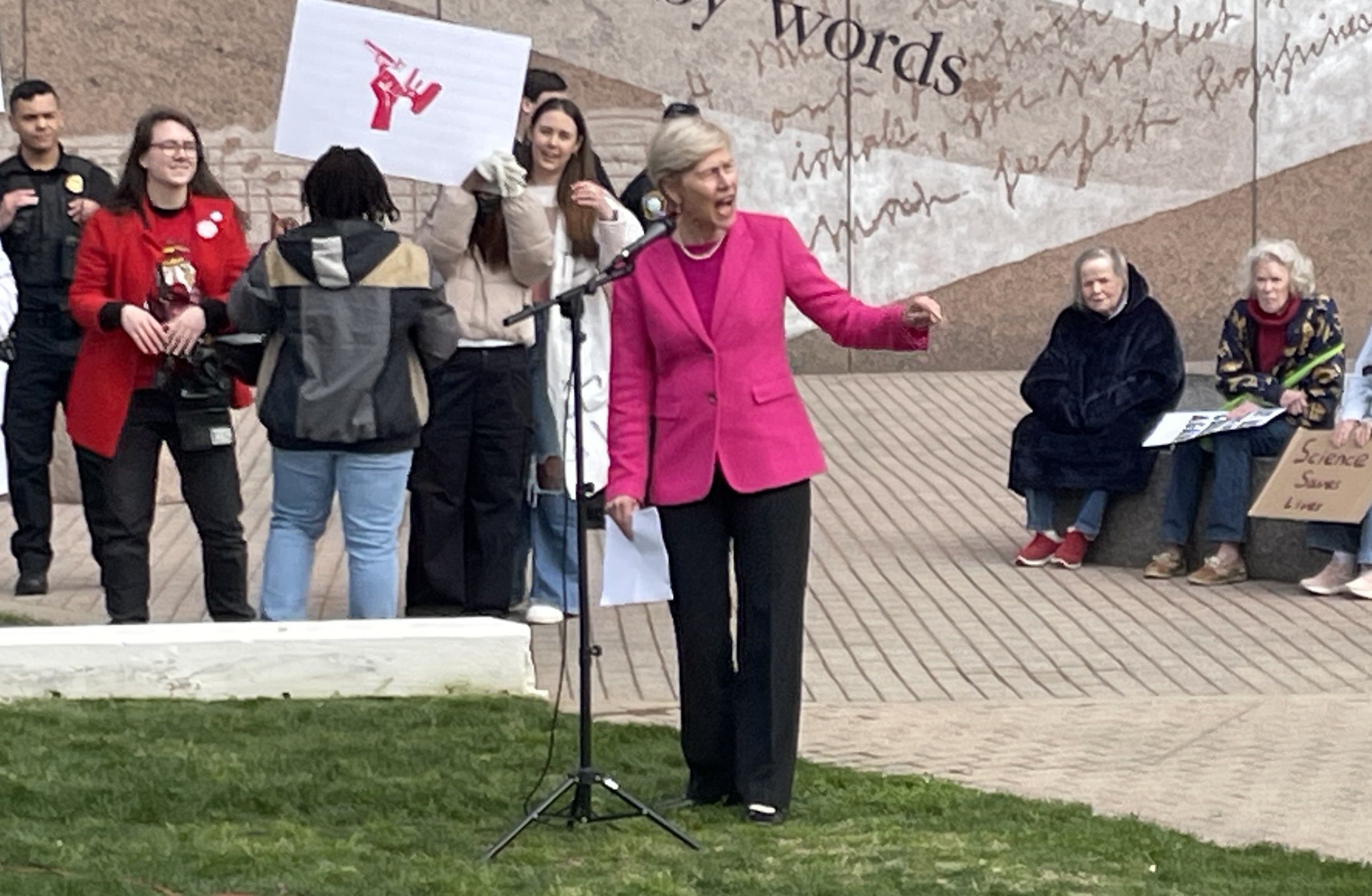
U.S. Representative Deborah Ross, a Democrat whose district includes Raleigh, made a speech at the protest.
Ross, whose congressional district includes Raleigh, also highlighted the importance of research to maintaining the country’s standing as a global leader, pointing out that these cuts are allowing China to overtake the US as the dominant force in scientific advancement
“It is fundamentally un-American,” she said. “If Trump is so concerned about China, we need to out-compete China, not just bash China.”
After the featured speakers, attendees were invited to go up to the microphone and give short speeches themselves. Dozens of people lined up to speak about their personal experiences and why this issue is important to them. Katherine Sivek, a Zebulon resident who suffers from ALS, spoke about how she almost certainly wouldn’t have survived this long if it weren’t for medical research.
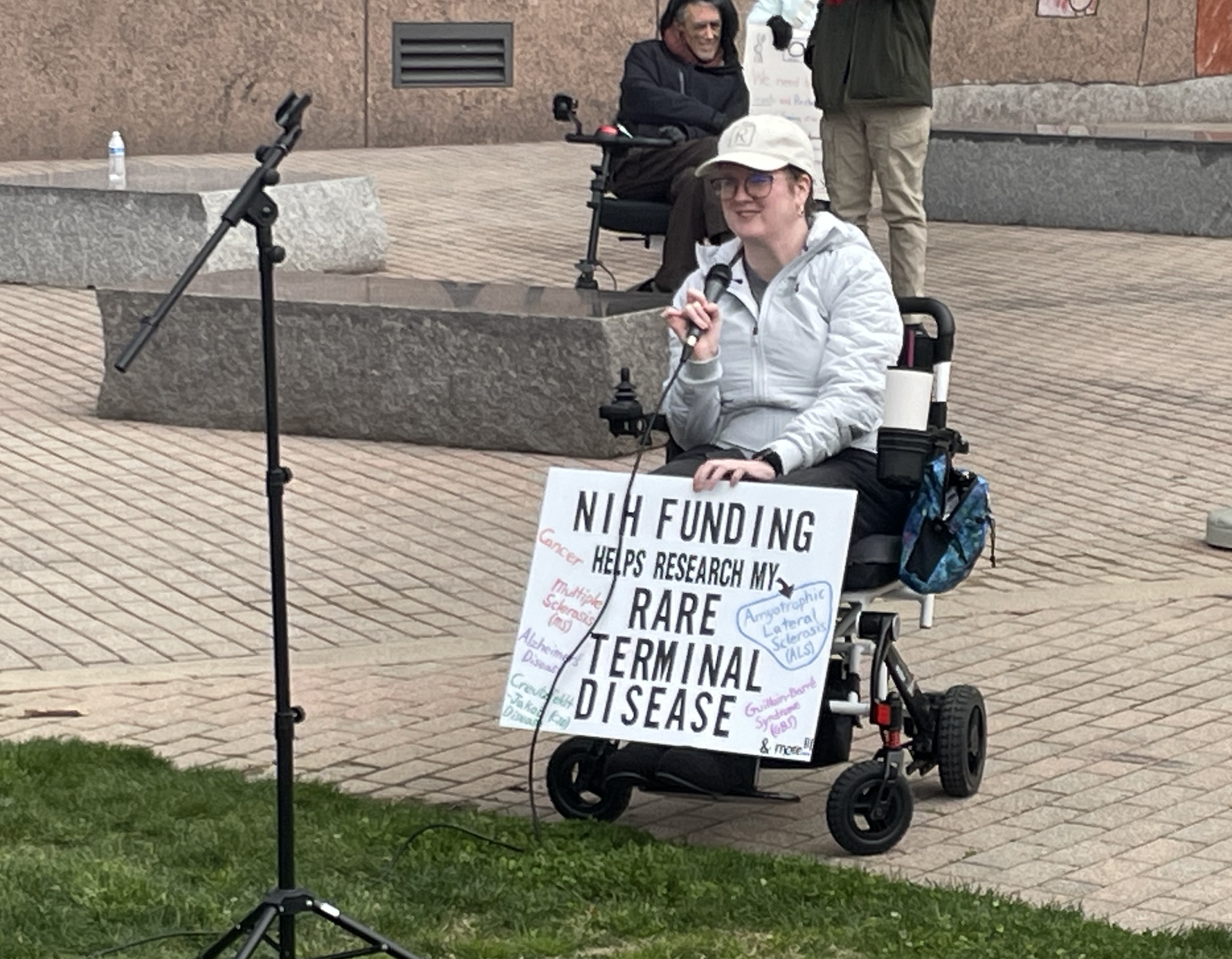
Katherine Sivek spoke about her ALS diagnosis and treatment at the rally.
“I really owe this last year of my diagnosis to researchers like you. Doctors, neurologists, Duke researchers,” she said. “I’m so proud to be here to support my fellow rare-disease patients. I’m so proud to be here with you all as you fight to keep science alive.”
Joel Ross, program manager of the Radiation Countermeasures Center of Research Excellence at Duke, said he fears he could lose his job, and he hopes demonstrations like this can get attention and have an impact on people in power.
“I am extremely concerned,” he said. “I think everyone, whether or not they’re employed directly by science or indirectly, I think everyone in the country should be extremely concerned.”
Muzzy said this event would ideally be just a first step in a sustained long-term drive to pursue this cause, and that she expects more efforts to raise awareness and pressure the administration in the future.
Chapelboro.com does not charge subscription fees, and you can directly support our efforts in local journalism here. Want more of what you see on Chapelboro? Let us bring free local news and community information to you by signing up for our newsletter.

